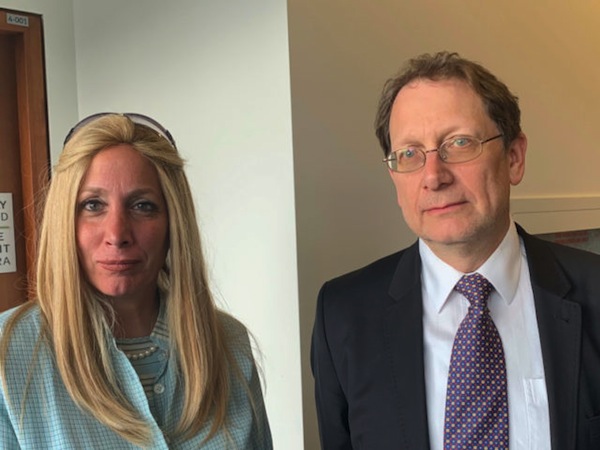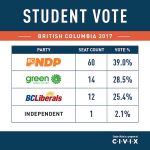Voters throughout British Columbia will elect new mayors, councilors, school trustees and (depending on the jurisdiction) other officials on Oct. 15.
Over the past several decades, terms for municipal officials have gone from two years to three years to, now, four years. This makes the significance of these elections greater, as the choices we make as voters will last four years. (This longer commitment also may be one reason for what seems like an unusually large number of elected officials opting not to seek reelection this year.)
It is notable that voter turnout in municipal elections is almost always lower – often far lower – than in provincial and federal elections. In some ways, this is understandable. The “senior” levels of government are associated with greater powers, which may be true, and with portfolios that may seem “sexier.” Foreign affairs are more exciting than sewage (generally speaking) and the proper functioning of our healthcare system is, for many of us, literally a life-and-death matter, which the mowing of boulevards is not.
Local government issues, however, often affect our lives in the most intimate and powerful ways. Anyone who has traveled in places without well-functioning local governments sees the evidence around them. Uncollected garbage amasses on boulevards and in public spaces. Feral cats, dogs and rodents roam largely unhampered. Petty, even serious, crime may be rampant. In other words, when civic government is running as it should, it is often invisible. When it is not, it can make ordinary life difficult or, at worst, impossible.
As often-privileged citizens of developed Western countries, we can sometimes use hyperbole about the challenges facing our communities. Overheated rhetoric about issues as comparatively banal as bike lanes, which demand that car drivers share a bit of the road with cyclists, can become so frenzied one might think a cabal of medieval tyrants had stormed the ramparts at 12th and Cambie. We should really put things in perspective.
Successful cities are, in their way, modern miracles. It is precisely their success that blinds us to their exceptionalism. Imagine: no matter where you live in Vancouver, a truck comes past your home once a week to collect the recycling you leave on the curb, knowing it will be collected (depending on the weather) without incident. Your children are within walking distance of public schools that are of truly outstanding quality by any measure of time or place. The bus we curse for not showing up at the exact moment we arrive at the stop is, for all our complaining, a remarkable operation. Hundreds of small cogs combine to make a city run.
Of course, we have complaints. A recent Leger poll indicates that 48% of Vancouver respondents (and, for example, 60% in Surrey) said things in their city have gotten worse in the past four years. This may be true. Certainly there are serious issues affecting residents, including but not limited to a housing affordability crisis, widening inequality, a drug poisoning crisis, and the impacts of climate change. And yet, for many, things are still pretty good.
This is not to say that voters should not always be pushing our elected officials to be better and do much, much better; merely that we need to remember that we live in one of the most fortunate places in the world, with millions of people envying that which we take for granted. Things can be better, at all levels of government, but the occasional language we hear that our governments are “broken” or “failing” is shortsighted and out of proportion.
The at-large system, which operates in Vancouver and every other city in British Columbia, is a barrier to an informed electorate. Voters in the City of Vancouver, for example, are expected to make educated choices for one mayor, 10 city councilors, nine school trustees and seven park commissioners from – by our count – 138 candidates who are contesting these positions this year. There is no earthly way even the wonkiest voter could adequately inform themselves about the pros and cons of this many contestants.
But we should do our best. The adage that those who don’t vote have no right to complain is nonsense. Everyone has the right to complain.
But voting is not only a right, a franchise. It is an obligation. For whatever flaws B.C. communities might have, all of our cities and towns remain among the finest societies anyone could hope to live in. To preserve and strengthen the places where we live, voting is, almost literally, the least we can do.


